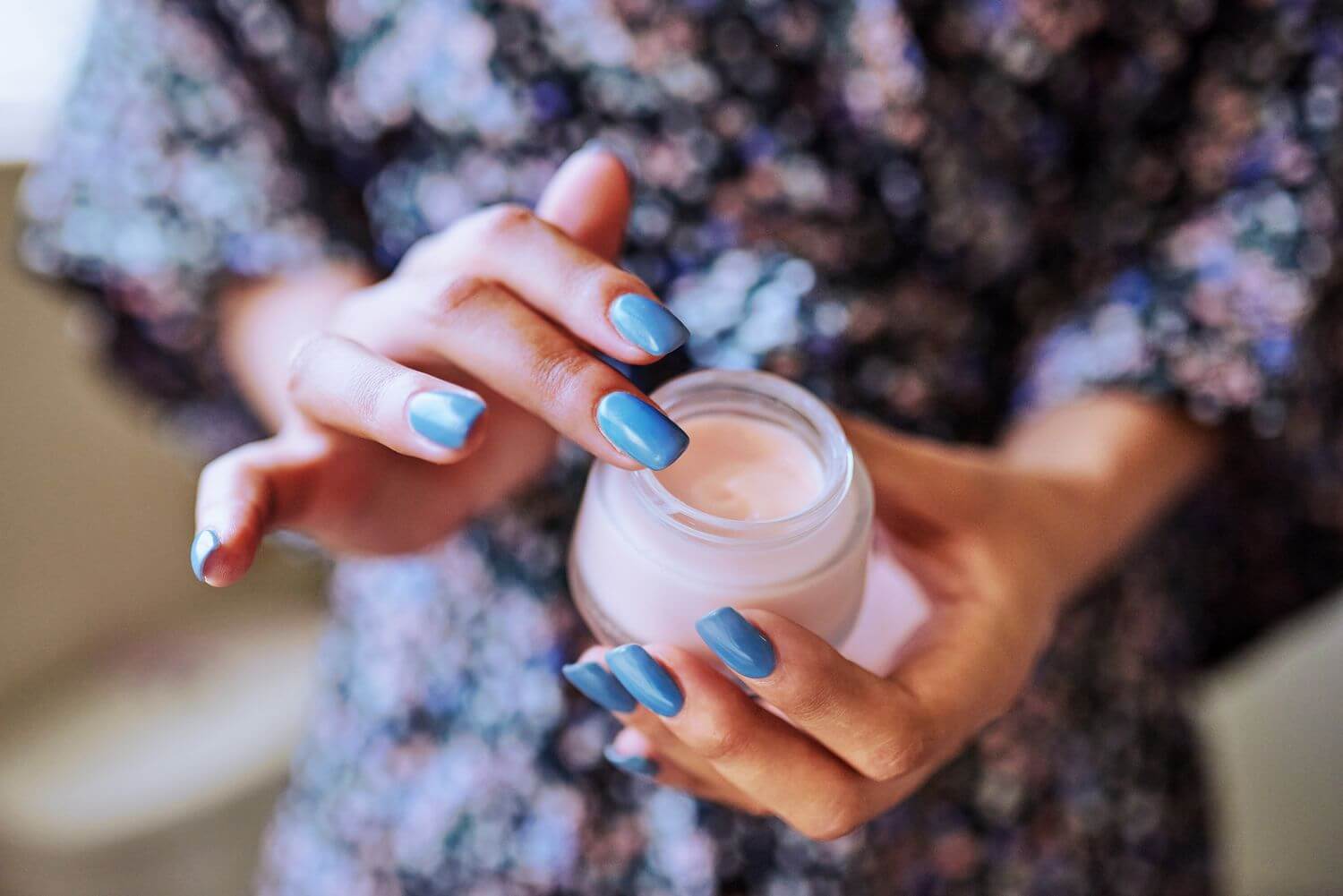When it comes to skincare, one essential product that often tops the list is a good face moisturizer. It keeps your skin hydrated, protects it from environmental damage, and maintains overall health. However, navigating through the world of moisturizers can be overwhelming. With so many different types of moisturizers available, each promising unique benefits, how do you find the perfect fit for your skin?
That’s where this ultimate guide comes in. We’ll help you understand the importance of face moisturizers, what key considerations you need to consider when choosing one, and how different types of moisturizers cater to specific skin needs. In this blog, we aim to simplify your search for the right moisturizer by offering comprehensive insights into the diverse world of face moisturizers. So, let’s dive in!
Understanding Different Types of Moisturizers
Navigating the world of moisturizers can be quite complex with all the available types.
Hydrating vs. Moisturizing: Unraveling the Difference
Many people use the terms hydrating and moisturizing interchangeably, but they are different. Hydrating products infuse your skin with water to improve its moisture level, while moisturizing products create a barrier on your skin surface that locks in this moisture to prevent loss. Understanding this difference is crucial to selecting the right product for your skin’s needs.
Water-Based Moisturizers
Water-based moisturizers are lightweight, fast-absorbing, and less likely to clog pores, making them ideal for oily or acne-prone skin. They often contain humectants, such as hyaluronic acid or glycerin, which attract water into the skin, promoting a plump and hydrated appearance.
Oil-Based Moisturizers
Oil-based moisturizers are richer and offer more intense hydration. They are perfect for dry or mature skin as they help seal in moisture and prevent dryness. Common oils used include jojoba, argan, and coconut oil, which are known for their nourishing properties.
Gel-Based Moisturizers
Gel-based moisturizers have a lightweight, cooling effect on the skin. They absorb quickly and leave no greasy residue, making them a favorite among those with oily or combination skin. These moisturizers can provide hydration without adding excess oil.
Creams and Lotions: Which to Choose?
Creams are typically thicker and more moisturizing than lotions because they have a higher oil content. They’re excellent for dry or dehydrated skin. Conversely, lotions are lighter and better suited for normal to oily skin types or for use in humid climates.
Skin Types and Matching Moisturizers
Recognizing your skin type is the first step towards a personalized skincare routine. Let’s dive deeper into how different skin types can benefit from specific moisturizers.
Dry Skin
Dry skin lacks natural oils and needs extra nourishment. Oil-based moisturizers or creams can provide this much-needed hydration, leaving the skin soft and smooth. Look for ingredients like shea butter, ceramides, and hyaluronic acid that help restore moisture.
Oily Skin
Oily skin produces excess sebum, creating a shiny appearance and potential breakouts. Water or gel-based moisturizers are ideal as they provide hydration without adding more oil. Ingredients like salicylic acid can also help control oil production.
Combination Skin
Combination skin is a mix of dry and oily areas, typically with an oily T-zone and dry cheeks. A lightweight, non-comedogenic moisturizer can help balance out these areas. Some people prefer using different products for different face areas.
Sensitive Skin
Sensitive skin can react to harsh ingredients, causing redness, irritation, or breakouts. Gentle, fragrance-free moisturizers are best for this skin type. Look for soothing ingredients like aloe vera or chamomile, which can calm inflammation and irritation.
Ingredients Matter: What to Look For
Regarding skincare, the ingredients in your products can make a big difference. High-quality, beneficial ingredients can help nourish and protect your skin. Here are some key ingredients to look for when choosing a moisturizer.
Hyaluronic Acid: The Ultimate Hydrator
Hyaluronic Acid is a hydration hero. It’s a powerful humectant that can hold up to 1,000 times its weight in water. It means it can help your skin stay hydrated, plump, and youthful-looking. Regardless of skin type, using a moisturizer with hyaluronic acid can be beneficial.
Nourishing Oils for Healthy Skin
Natural oils like jojoba, argan, and sapphire oil nourish your skin. They’re packed with essential fatty acids that can help support healthy skin function. They can provide intense hydration, leaving your skin feeling soft and supple. Sapphire oil, in particular, is known for its unique skin-loving properties.
SPF in Moisturizers: Sun Protection Essentials
Adding SPF to your skincare routine is a must, and many moisturizers now include this essential ingredient. SPF can help protect your skin from harmful UV rays, which can cause premature aging and sun damage. So, a moisturizer with SPF can keep your skin hydrated and saved at the same time.
Decoding Labels: What Do the Terms Mean?
Understanding skincare labels can be tricky. But once you know what to look for, finding products that suit your skin’s needs can be much easier. Let’s break down some common terms on skincare product labels.
Fragrance-Free vs. Unscented
“Fragrance-Free” means a product doesn’t contain fragrances, while “Unscented” means a product doesn’t have a noticeable smell. However, unscented products could still contain fragrances that neutralize other smells. If you have sensitive skin, opting for fragrance-free products is usually best.
Non-Comedogenic: A Must-Have for Acne-Prone Skin
A product labeled as “Non-Comedogenic” means it’s designed not to clog pores. It is essential for people with acne-prone skin, as clogged pores can lead to breakouts. So, if you’re prone to acne, look for moisturizers labeled as non-comedogenic.
Organic and Natural Moisturizers: Myth or Reality?
“Organic” and “Natural” are terms often used in skincare but can be misleading. Not all products labeled as organic or natural are necessarily better for your skin. It’s important to read the ingredient list and understand what each ingredient does. Always choose products that are beneficial for your specific skin type and concerns.
How to Choose the Perfect Face Moisturizer: Step-by-Step Guide to Finding Your Ideal Product
Selecting the perfect face moisturizer can seem daunting with so many options on the market. However, by understanding your skin’s needs and the different product formulas, you can find a moisturizer that’s just right for you.
Assessing Your Skin’s Needs
The first step in choosing a face moisturizer is to assess your skin’s needs. Are you dealing with dryness, oiliness, or a combination? Do you have sensitive skin, or are you prone to acne? Knowing your skin type and its specific needs will help guide you toward the right products.
Understanding Product Formulas
Next, it’s essential to understand the different product formulas available. Creams are typically heavier and great for dry skin; lotions are lighter and may be ideal for oily or combination skin; gels are often best for sensitive or acne-prone skin. Additionally, look for key ingredients that address your skin’s needs, such as hyaluronic acid for hydration or salicylic acid for acne.
Patch Testing for Compatibility
Finally, before fully committing to a new moisturizer, it’s recommended to do a patch test. It involves applying a small amount of the product to a discreet area of your skin, like your wrist or behind your ear, and waiting 24 hours to see if any reaction occurs. This step is crucial for ensuring the product is compatible with your skin and won’t cause irritation or breakouts.
Summary: Your Path to Glowing, Hydrated Skin
Understanding how to choose a face moisturizer that fits your unique skin needs is vital in establishing an effective skincare routine. Remember, it’s not just about picking a product with attractive packaging or following trends. It’s about finding a formula that addresses your skin concerns, whether dryness, oiliness, sensitivity, or acne. This process might take some trial and error, but it’s worth the effort for the health and appearance of your skin.
Furthermore, always patch-test new products to ensure they’re compatible with your skin. Everyone’s skin is different, so what works for someone else might not work for you. In your journey to finding the perfect face moisturizer, stay patient, be consistent, and, most importantly, listen to your skin. After all, a well-chosen moisturizer can make a difference in your complexion, leaving it hydrated, balanced, and glowing.









